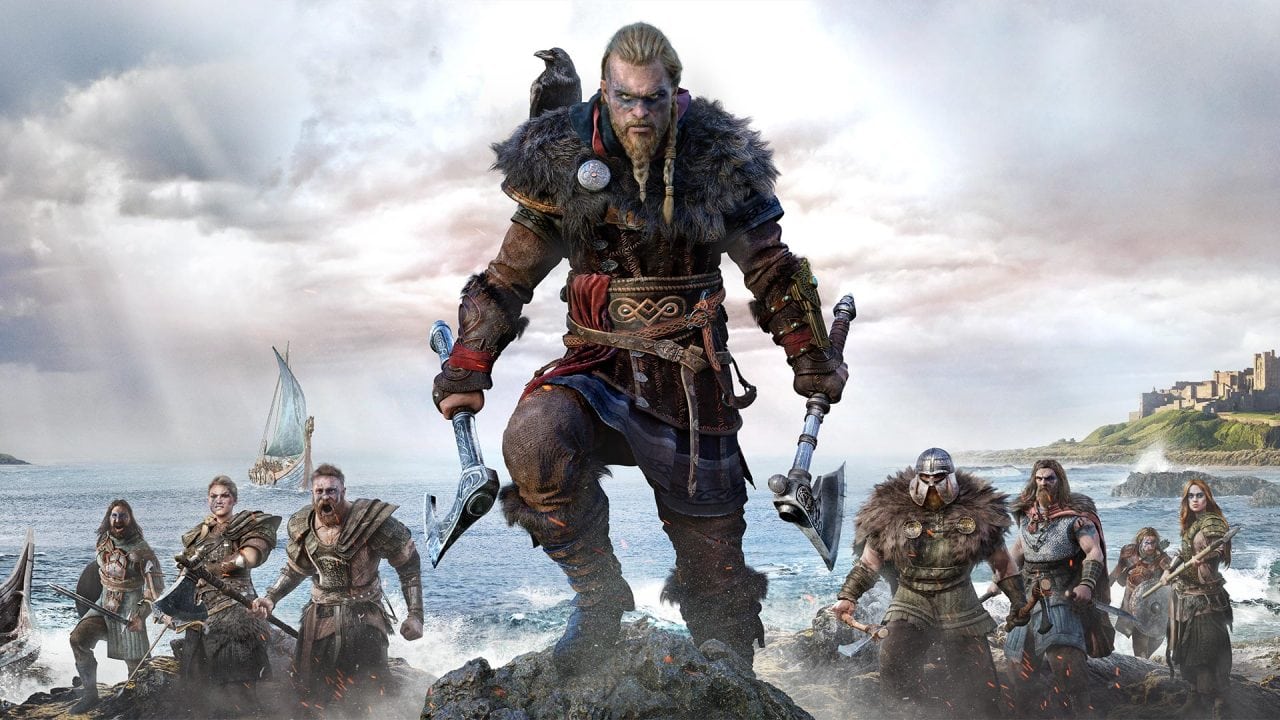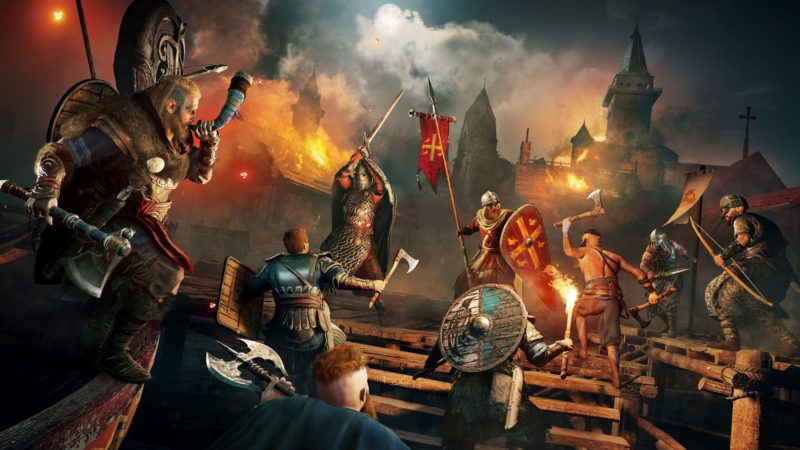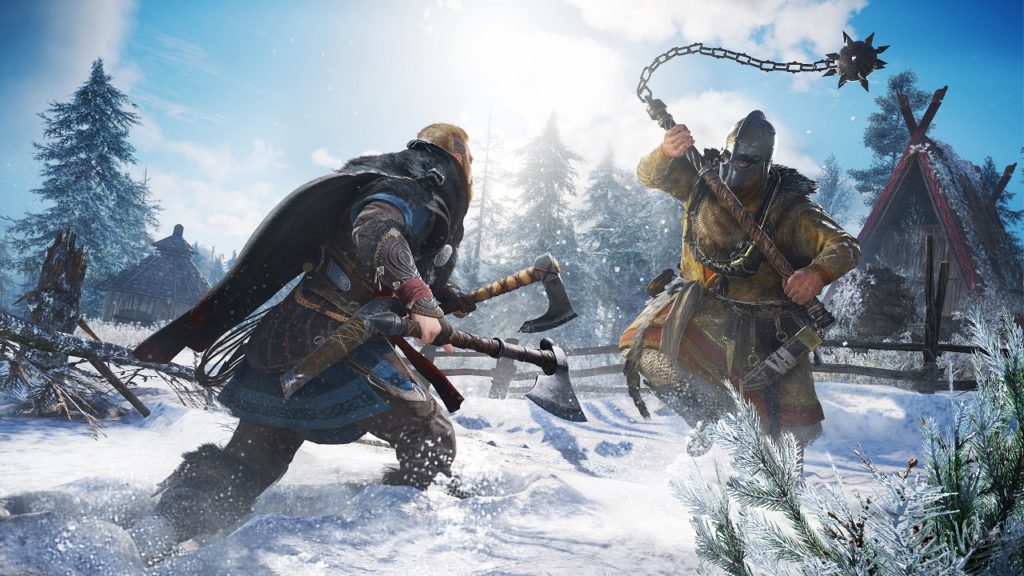The Assassin’s Creed series has always been a fascinating case study for how a video game franchise can evolve over time, not only tonally but with its genre as well. Rising from the ashes of the much-revered Prince of Persia franchise, Assassin’s Creed was Ubisoft’s foray into a completely new way of tackling stealth games.
The original Assassin’s Creed game was, arguably, quite ahead of the curve when it came out. It had an innovative parkour system that surpassed anything that had ever come before it and it made good use of its strengths in that department, leveraging them to construct a compelling narrative as well.
In addition to that, it was also one of the very first games that gave birth to the fighting mechanics that we see in most modern melee combat games. The weapons felt like they had actual weight to them, the parrying was robust and the timing for the counter attacks was meaningful.

However, it was not until the second game in the series that the Assassin’s Creed franchise had actually found its footing and figured out what it was supposed to be.
Assassin’s Creed 2, and in extension the entire Ezio trilogy, was a perfect showcase of how you can inject good narrative into the foundations that Ubisoft had already built. If the original game was the tech demo, the Ezio trilogy was the real deal.
Over 10 years have passed though since Assassin’s Creed 2 and a lot has changed for the series. After struggling for a couple of years with mediocre releases that were getting too repetitive at times, the Assassin’s Creed series found a new life in 2017 with the release of Assassin’s Creed Origins.
And, although both Origins and Odyssey managed to be very successful in their own regard, they had to switch genre and delve into the RPG realm. Now, with the announcement of the latest entry in the franchise, Assassin’s Creed Valhalla, it seems like Ubisoft is going to flex its muscles once again and take even more liberties with what it means to be an Assassin’s Creed game.
Set during the ninth century when the Vikings were trying to expand their reach from Norway into England, Assassin’s Creed Valhalla will allow players to explore the vast open worlds of its two main regions. However, this time around, there’s a lot more to the game than just the tried and tested formula of doing quests and levelling up your character and equipment.
Apart from the branching storylines and dialogues that were somewhat introduced within Assassin’s Creed Odyssey, Valhalla will allow players to take control of a Viking clan and build up their own settlement/village from scratch. The settlement will serve as a focal point for your journey and the decisions you make during gameplay and dialogue will have consequences that will affect it.
Use your gaming PC to fight against COVID-19
Additionally, the levelling and fighting mechanics in Assassin’s Creed Valhalla are also going to be very similar to Odyssey and Origins, which is not a bad thing at all.
However, one could argue that all of these little changes have piled up over time and have turned the Assassin’s Creed series into a completely different beast than what it started out as. As the games are set in the ancient times now, there isn’t even an Assassin brotherhood yet, just subtle nods to it and the ideology that resulted in the creation of the creed.
While all of these factors do not mean that the game has gotten any worse (in fact, the Assassin’s Creed series is on an exceptionally good run right now), it does compel one to ask the question that at what point does Assassin’s Creed stop being Assassin’s Creed? What even is Assassin’s Creed? Is it whatever game is associated with the name or is it the story of a historical struggle between good and evil with supernatural elements sprinkled on top?
Putting the change in gameplay direction aside, many people argue that there isn’t anything significant enough, especially in terms of story that makes these games tie into the Assassin’s Creed universe anymore.
Yes, the modern day story of Layla Hassan is still being continued but it serves little to no purpose in the grand scheme of things, which is a far cry from how the game dealt with the character of Desmond Miles. Furthermore, the existence of the Isu and the gods is indeed there but that too feels like it has been shoehorned into the game at times just so that it could label itself as an Assassin’s Creed game.
Many people have also been infuriated by the inclusion of mythical creatures and such due to historical accuracy but honestly, not including them within games set during ancient times would have been a missed opportunity.
And, the Assassin’s Creed games were never exactly about 100% historical accuracy anyway. I don’t know about you but I don’t remember there being a magical apple that can mind-control everyone in history or a solar flare that almost destroyed the entire world.
The fantasy side of Assassin’s Creed has always been like this but what does deviate the modern games from their roots is the ever-diminishing focus on the whole Assassin aspect of things.
However, one could also argue that the series would have maybe not survived without these changes and they were absolutely necessary. The Assassin’s Creed games before Origins were constantly under flak for being too same-y and bringing nothing new to the table. And, currently, the series is arguably on the best run it has had since Assassin’s Creed 2.
So, maybe Assassin’s Creed Valhalla is a product of just adapting and keeping up with the times. But, do these games still have to be called Assassin’s Creed games?
Couldn’t Ubisoft just scrap the Assassin’s Creed name for a while and turn these games purely into what they are; a historical fantasy RPG? Would it not be better if Assassin’s Creed Valhalla was just called Valhalla and Ubisoft didn’t have to force the Assassin’s Creed lore into it? Or is the Assassin’s Creed name just too precious to forego?
Whatever the case may be, the modern Assassin’s Creed games, despite their supposed diversions, are still fantastic games and we can expect Valhalla to be no different. And, these changes have allowed Ubisoft a little more freedom and liberty to showcase their creative prowess, especially with the games now exploring the most fascinating eras of the history.
Do you think that the Assassin’s Creed franchise is heading in the right direction or do you think that it should try to return to its roots? Let us know down in the comments below!
Assassin’s Creed Valhalla is coming this Holiday 2020 on PC, PS4, Xbox One, Xbox Series X, Google Stadia and the PlayStation 5. You can pre-order it here.




